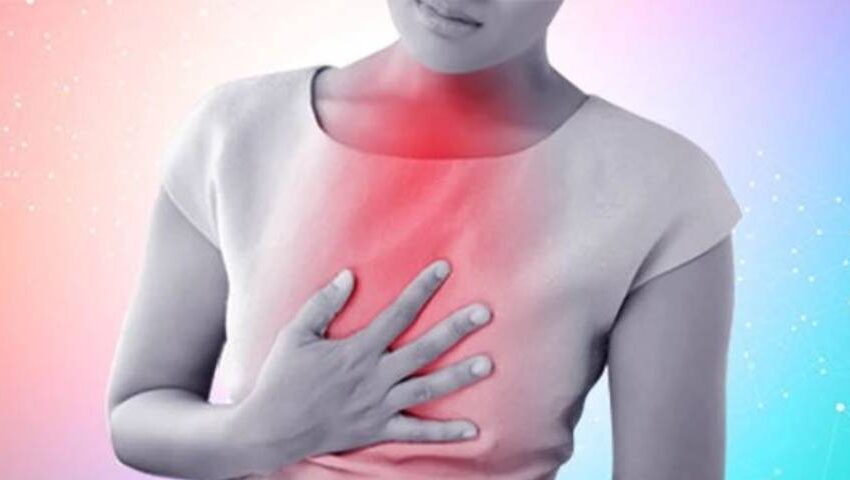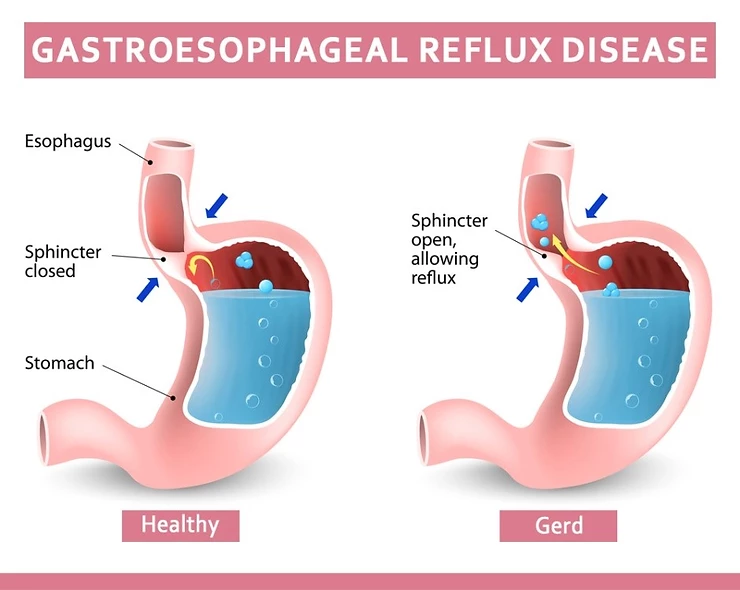
- 22/02/2021
- Dr. Samrat Jankar
- 0 Comments
- Blog
Gastroesophageal Reflux Disease (GERD)
How Does GERD Happen?
What happens inside your body during Gastroesophageal reflux or acid reflux:
When you swallow your food passes down your throat and through your esophagus or food tube into your stomach.
The lower esophageal sphincter is a muscle that controls the opening between the food pipe and the stomach. This muscle remains tightly closed except when you swallow food.
When the muscle or sphincter fails to close, the stomach’s acid-containing contents can push back into the esophagus or food pipe; this backward flow is known as reflux.
When stomach acid goes into the lower part of the esophagus, it can produce a burning sensation commonly referred to as heartburn. For those who have GERD, the backflow of acidic stomach contents can be a persistent problem.
What Causes GERD?


Many factors might explain why this reflex action happens. The most important are the following:
- Position of your body after eating
- Size of your meal
- Nature of the foods you eat and drink
- Substances that irritate the esophagus or weaken the sphincter
These are some conditions that can increase your risk of getting GERD:
- Obesity
- Bulging of the top of the stomach up into the diaphragm (hiatal hernia)
- Pregnancy
- Disorders in connectivity tissue, like scleroderma
- Delay in stomach emptying
Symptoms of GERD
Everyone has a bit of experience with gastroesophageal reflux. It happens when you burp or have an acid taste in your mouth. However, if these symptoms have become frequent and interfere with your daily life, then it is time to see a doctor.
Remember, these symptoms are only a sign of GERD if they happen frequently:
- Heartburn
- A sensation of food moving up the throat or into the mouth
- A bitter or sour taste persistent sore throat, hoarseness, and chronic coughing
- Sudden excess of saliva
- Difficult or painful swallowing
- Asthma
- Unexplained chest pain(severe cases)
- Bad breath
- A kind of lump feeling in the throat, and
- An uncomfortable feeling of fullness after meals
- Cavities (severe cases)
In more severe cases of untreated GERD, permanent damage can occur to the teeth, as the harsh stomach acid erodes tooth enamel. Damage can also occur in the esophagus, larynx, mouth, or any part of the upper digestive tract regularly exposed to acidic stomach contents.
Treatment For GERD
GERD is a prevalent problem, especially among adults. According to Dr. Jankar, a well-known stomach specialist in pune proper combination of lifestyle changes and medications, it is possible to manage symptoms and get relief.
- Avoid fatty or spicy foods
- Avoid alcohol and caffeine
- Avoid foods that make you feel worse
- Reduce meal size
- Maintain a healthy weight
- Upright posture helps prevent reflux
- Elevate the head of the bed by few inches
- Avoiding smoking
- Reducing the amount you eat before bed
These changes are a great starting point, but many people with GERD require further treatment. There are two main approaches to treating GERD with medications: neutralizing acid and blocking its production.
Over-the-counter medications are useful for neutralizing acid. These antacids can provide quick, temporary, or partial relief, but they do not prevent heartburn.
Some medications, which are mostly available by prescription, work to block the production of acid and prevent reflux from happening in the first place. But there are some people with GERD who require stronger medications or surgery to make these symptoms disappear.
Find medical care if you have chest pain, especially if there is shortness of breath, jaw, and arm pain accompanying. These could be heart attack signs and symptoms. By following your physician’s directions and using a combination of these treatment methods, it is possible to manage symptoms and live a healthy life.
